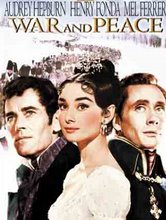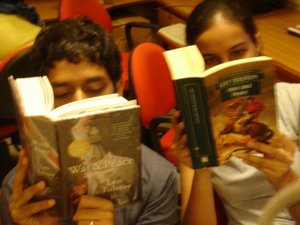 The missing women of Tolstoy's battlefield.
The missing women of Tolstoy's battlefield.[by Manika Dhama]
In India when one thinks of warriors over the ages, the name of Rani Lakshmi Bai of Jhansi stands out. (Her iconic image can be seen on the left) She died on the battlefield while fighting valiantly against the British forces during the rebellion of 1857. Rani Jhansi remains the epitome of courage, bravery and strength. But what about Tolstoy's Natasha?
If you’re a female character in a book that deals with war, you’re most likely to be a pregnant wife, an ailing mother or a mistress pining for her lover. There are no women on the battlefield. There are no moments of ‘heroic’ triumph. These characters will be affected by the war but cannot or will not participate actively in it. Natasha Rostova continues to bring cheer to readers of War and Peace. But to ‘interact’ with her one has to wait for the scenes to shift to the drawing room. Inspite of her cheerful confidence she will never be involved in making strategic defense plans.
Tolstoy is not taking liberties with reality by not placing women on the battlefield. That was (and still is) the reality in most parts of the world. Many argue that women must not be sent for war, at least not as combatants. They feel that the army would be exposing women to extremely vulnerable situations that they may have to face especially if captured by the enemy. One can understand that argument, to a certain extent.
I think a discussion on women and war would be incomplete without utilizing some space (perhaps only a paragraph) to look at Margaret Mitchell’s novel Gone With The Wind. The book is as much about the civil war as about the trials, travails and triumphs of the heroine Scarlett O’ Hara. She is affected by the war, does not completely understand it, but is determined to live through it. She is quite the mercenary, having no qualms about doing business with the ‘damned Yankees’. Of course her attraction towards Ashley makes one want to shake her and say “Woman! Get over it!” So, for all her steely determination and business tactics, one cannot appreciate her fully because of her ridiculousness in matters of the heart. And because she hasn’t fought in the war she cannot have the moral satisfaction of being ‘excused’ for making money during the war.
When I read the war scenes in War and Peace, I always miss the women. How exciting it would’ve been to know that Natasha Rostova could be a worthy opponent to Napolean or that Lise did not die during childbirth but on the battlefield. That is not to say that war is necessarily glorious and must be celebrated. But at least one could have taken it for granted that being a woman does not disallow one the opportunity to attain glory or fail miserably.






No comments:
Post a Comment